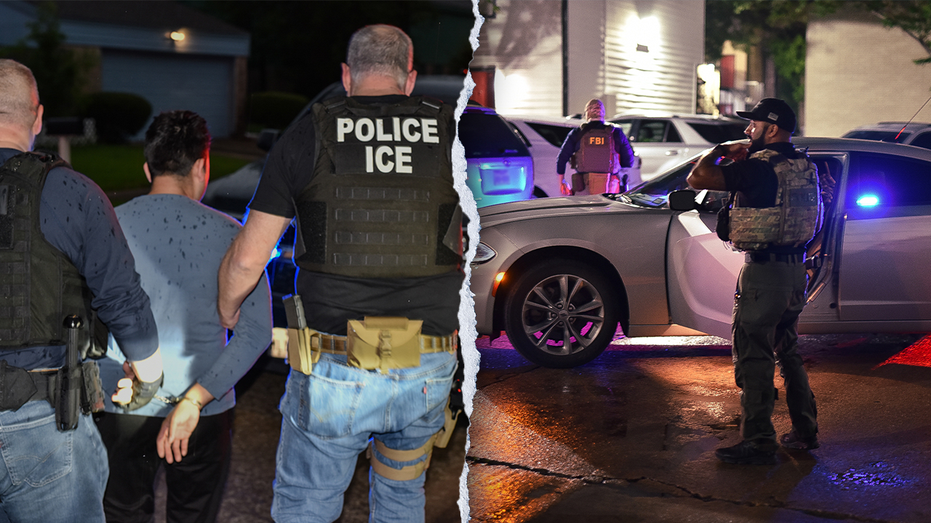ICE Conducts Major Texas City Roundup Deporting Child Predators, Gang Members, and Human Traffickers
ICE deported 142 criminal illegals, including child predators and traffickers, in Houston over the past two weeks.

In a recent enforcement push, officers with U.S. immigration authorities deported 142 criminal aliens to Mexico from the Houston area over a two-week period. The targeted removals, which occurred between May 19 and May 30, included individuals convicted of a spectrum of serious crimes, ranging from child exploitation to human trafficking and gang activity. The deportees collectively accounted for 473 criminal convictions and had entered the United States illegally a total of 480 times, highlighting the ongoing challenges faced by law enforcement agencies at the southern border.
Among those deported were 11 individuals convicted of child-related sexual offenses, eight identified as documented gang members, and one individual who had re-entered the country an astonishing 21 times despite prior removals. Other convictions within the group included 43 cases tied to aggravated assault and domestic violence, 48 for drug-related crimes, and 22 involving human trafficking or smuggling. The list of charges also featured at least one conviction for making terroristic threats, underscoring the broad public safety risks posed by these repeat offenders.
Highlighting the profile of some of those removed, officials identified Alejandro Aguilar Vazquez, a 45-year-old Mexican national, previously convicted three times of cruelty towards a child. Luis Angel Garcia-Contreras, aged 40 and tied to the Surenos 13 gang, had entered the U.S. illegally 21 times and had four previous convictions related to illegal entry. Another deportee, Benito Charqueno Zavala, 60, was noted for his conviction on charges of continuous sexual abuse of a child.
Bret Bradford, the director overseeing ICE Enforcement and Removal Operations (ERO) in Houston, emphasized that such cases are unfortunately common. "This is not an anomaly," he stated, drawing attention to the lack of deterrence in recent years that has contributed to a surge in illegal entries, including those by violent criminals, child predators, and transnational gang members. Texas, which contains over 60% of the U.S.-Mexico border, has been acutely affected by these trends, with significant impacts on local communities throughout Southeast Texas.
"Many of these dangerous criminal aliens went on to prey on law-abiding residents in our communities," Bradford stressed. He described the recent round of deportations as a "small snapshot" of a much larger problem, noting that the 142 cases only reflect removals to one country over a brief timeframe.
The scale of the issue was further addressed by Ammon Blair, a senior fellow at the Texas Public Policy Foundation. Blair warned that this operation "reveals a far deeper crisis unfolding across our nation—one that poses a direct threat to public safety, national security, and the rule of law." He cited ICE data showing 650,000 criminal aliens currently present on ICE’s Non-Detained Docket, able to freely move through American communities, far surpassing the recent removals in Houston.
Blair added that Texas has become the front line in this crisis not just due to its geographic location but also because of mounting concerns from local leaders. Nearly 100 Texas counties have declared disaster or even invoked invasion language, citing the rise of cartel operations, weaponized migration flows, and the release of violent offenders into communities. "This is not a policy disagreement. It is a public safety emergency," Blair asserted.
State officials echoed these concerns, with Andrew Mahaleris, a spokesperson for Texas Governor Greg Abbott, describing the current deportation efforts as a response to what the state sees as longstanding federal shortcomings. Mahaleris credited recent federal actions for stepping up enforcement: "President Trump’s deportation efforts are making Texas safer," he said. He reaffirmed the state's commitment to continuing support for federal immigration enforcement and expressed gratitude for what he characterized as a renewed focus on upholding the rule of law.
As the debate over immigration policy and border security intensifies, state and federal officials alike point to recent operations as both a measure of progress and a stark reminder of the scope of the challenge still facing the nation.




